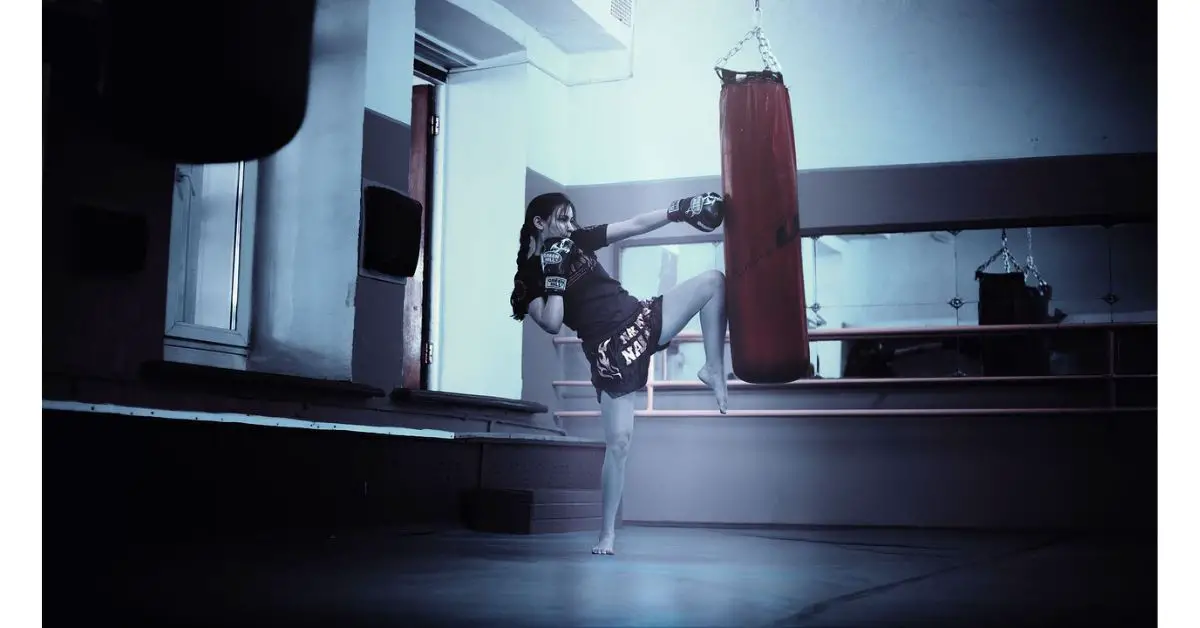Karate and kickboxing are two effective and suitable martial arts for self-defense. Because of that, some may find it difficult to choose between the two. While they’re somewhat similar, they’re highly different. So, which is better out of the two?
Kickboxing is better than karate for fighting purposes because it teaches more effective techniques-capable of disabling the opponent swiftly. Moreover, kickboxing promotes using full contact, a more effective way of winning a fight faster, than karate – which promotes mild contact.
So, is the article over? Did I just conclude that kickboxing is better than karate and that’s it? Well, not precisely.
The benefits and advantages of karate are many. As a result, learning it-will be one of the best choices you make since it’s life-changing. Most people don’t seem themselves training a traditional martial art.
However, karate benefits its trainees in many ways, such as boosting their confidence, growing their self-esteem, and promoting invaluable values, such as work ethic and discipline.
So, I’m confused; which one is better?
This article will examine and compare the two martial arts. If you want to know which is better and their differences & similarities. So, if you want to know which is the better fighting style, stick around.
Which is Better, Karate or Kickboxing?
Comparing two martial arts-is an incredibly difficult process, since everyone can find benefits in anything. For this section, we’ll assume two fighters in the same skill level-each from one fighting style. Then, we’ll picture them fighting and see which is the winner.
Kickboxing is better than karate because it teaches more practical and effective techniques for self-defense and other fighting purposes. As a result, the kickboxer will be able to win over the karate master, regardless of what style of karate the master uses.
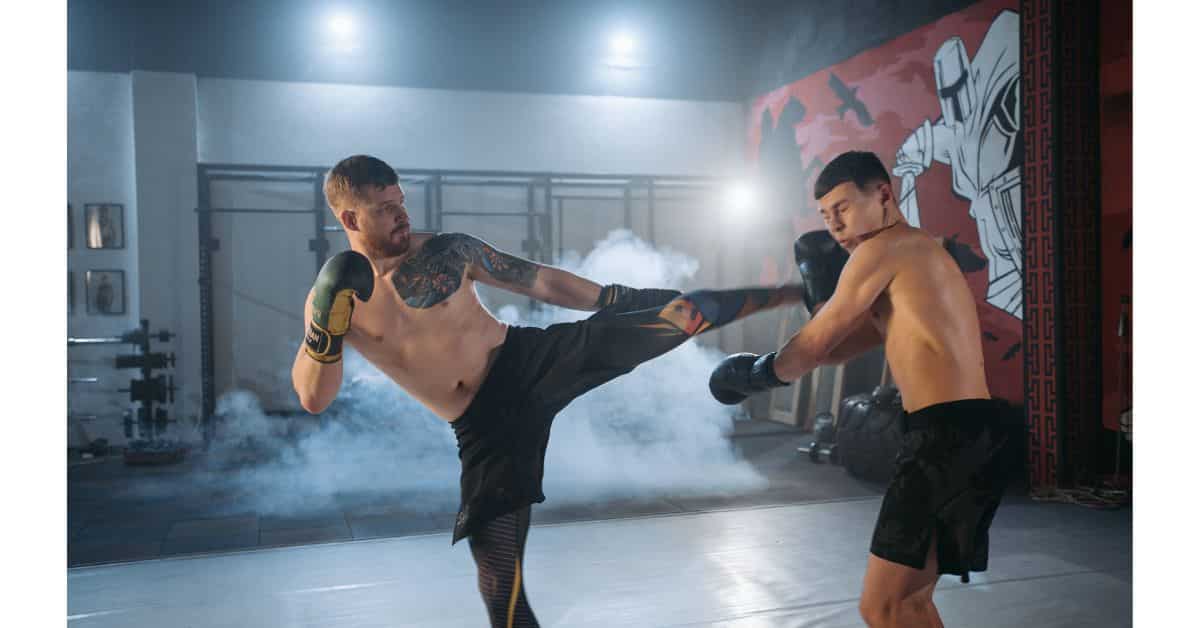
That answer is generalizing the situation and assuming one has to be better than the other. So, I gave you a general answer. But, is there more to it?
While I did mention that kickboxing is better than karate, I didn’t tell you the entire story. I want to emphasize how individualistic this entire topic is. For example, one trainee can fall in love with the art of karate, as it uses many interesting combinations and provides more than just learning to fight.
On the other hand, if you want to learn self-defense, kickboxing might just be more suitable to your situation and desires.
The point is – comparing two martial arts is challenging and will cause some controversy. Therefore, I can’t say which is better without a worldwide experiment, which isn’t likely to happen.
But yes; if you want to become the best fighter, I’ll encourage you to learn to kickbox more than the latter.
The Differences Between Karate and Kickboxing
The following sections will discuss the differences between karate and kickboxing. Knowing them-will help you in understanding and being capable of choosing which to learn.
The decision between two martial arts may get incredibly difficult. Ironically enough, the choice itself may be more stressful than the training itself. Therefore, if you’re indecisive and are eager to start learning, randomize your decision and start training as soon as possible.
If anything goes wrong, you can always change your primary martial art to another.
Without further ado, let’s dive into the first difference between the two martial arts.
Difference #1- Fighting techniques
The first difference between kickboxing and karate is the fighting techniques they teach. I will go as far and say that this perhaps may be the most important piece of information in the entire article.
Eventually, knowing which teaches what will help you know which is most suitable for your desires. As a result, making a choice-suddenly becomes easier.
Karate and kickboxing use punching and kicking for their primary fighting techniques. However, kickboxing uses more straightforward movements, such as the jab, hook, and the front kick. On the other hand, karate teaches its trainees traditional moves-which will seem odd to an external eye.
Read the following section again and notice which sparks more interest in you. If you find that you’re more eager for one over the other, it’ll be best if you stick with it.
Choosing which to learn is complicated because it’s what you’ll learn for the next extended period. As a result, you want to ensure you’ll stay consistent regardless of your motivation levels (which will decrease at some point).
So, if you want to learn a traditional fighting style, that uses traditional moves, go ahead and select Karate. On the other hand, if you desire to study a modern martial art, that uses straightforward techniques, consider kickboxing.
The following video showcases the odd (in a good way) nature of karate and its traditional style and methods.
Difference #2- Rules & Points
Karate and kickboxing are two fantastic and suitable martial arts for self-defense. Moreover, many competitions revolve around them. As a result, the ways you get points-will be different. So, let’s examine some rules and ways of point-distribution in these two fighting styles.
While karate promotes mild-contact in its competitions, kickboxing involves full-contact and thus knocking out the opponent is an option. As such, you get a point in karate by landing a clean hit on your opponent. Contrary, you get points in kickboxing by causing massive damage to your opponent.
It all links with how each perceives fighting. For example, karate isn’t a martial art that promotes causing massive damage to your opponent until one can’t walk. In fact, the opposite is true.
On the other hand, kickboxing is a fighting style which promotes the use of punches and kicks to cause massive damage. As a result, many of its competitions involve aggressiveness and explosiveness on the opponent.
Disqualifications also play a major role in these martial arts. Common sense tells us that Karate, a martial art which doesn’t promote full-contact, will emphasize disqualifications. Well, that’s as accurate as it can get. Getting disqualified in it isn’t as complicated if you manage to knock the opponent unconscious.
It all ties back to their nature. While Karate is a less aggressive traditional fighting style, which doesn’t promote causing massive damage unless you have to, kickboxing is the opposite; it teaches you to use punching and kicking to knock the opponent unconscious.
Difference #3- Origin
The last difference we’ll discuss is the origin of the two martial arts. One may ask, why do I need to bother about where they came from? All I want is to learn to fight and improve myself. Well, that definitely makes sense when thinking about it like that. However, the origin of the martial art points to many conclusions.
Karate originates from Okinawa island, Japan. The people of Okinawa wanted to learn self-defense, so they would be able to defend themselves, they need to. As a result, they constructed a new martial art. Today, we know it as karate.

So, karate originates from Japan. Now, what does that give you?
The Japanese culture has designed and reconstructed how it looks today. Therefore, it’s not uncommon to see the same traits in all Japanese martial arts, such as Judo and BJJ.
Primarily, the values of all Japanese fighting styles-are the same. They are: discipline, work ethic, and even self-confidence. Because of that, knowing where the martial art you want to learn originates from-is vital.
On the other hand, kickboxing is also from Japan. Wait, so what makes their origins different?
When experiencing and examining kickboxing’s techniques and movements, we can see a major difference between it and karate. So, how does that makes sense?
In short, it’s a modern martial art while the latter is a traditional one. As a result, I wanted to emphasize how it influences how each looks.
So, now you know where they come from and the effect it had on how they feel today.
The Similarities Between Karate and Kickboxing
Thus far, we’ve discussed the 3-differences between karate and kickboxing. Now, it’s time we go through the similar traits between them.
Knowing these will help you make a wiser decision regarding which is the better martial art. Why?
All martial arts are unique. Nonetheless, they all have similar traits and that’s what makes them link. For that reason, knowing what they do best as one-will help you understand them better and thus make a wiser choice when you need to choose which is most suitable to your desires.
Similarity #1- Purpose
The first similarity between the two martial arts is their purpose. Purpose is why they exist in the first place. The people who first constructed them did it for a reason – a purpose.
Both karate and kickboxing exist to fulfill the need of teaching others self-defense. The first was constructed by the people of Okinawa, who wanted to find a way to defend themselves. Similarly, kickboxing first originated from Japan to eventually become a fighting style people can learn.
This similar trait is all it takes to understand their purposes – why they exist. Hence, if you want to study them and understand what good they do, you must first comprehend the reason someone created them in the first place.
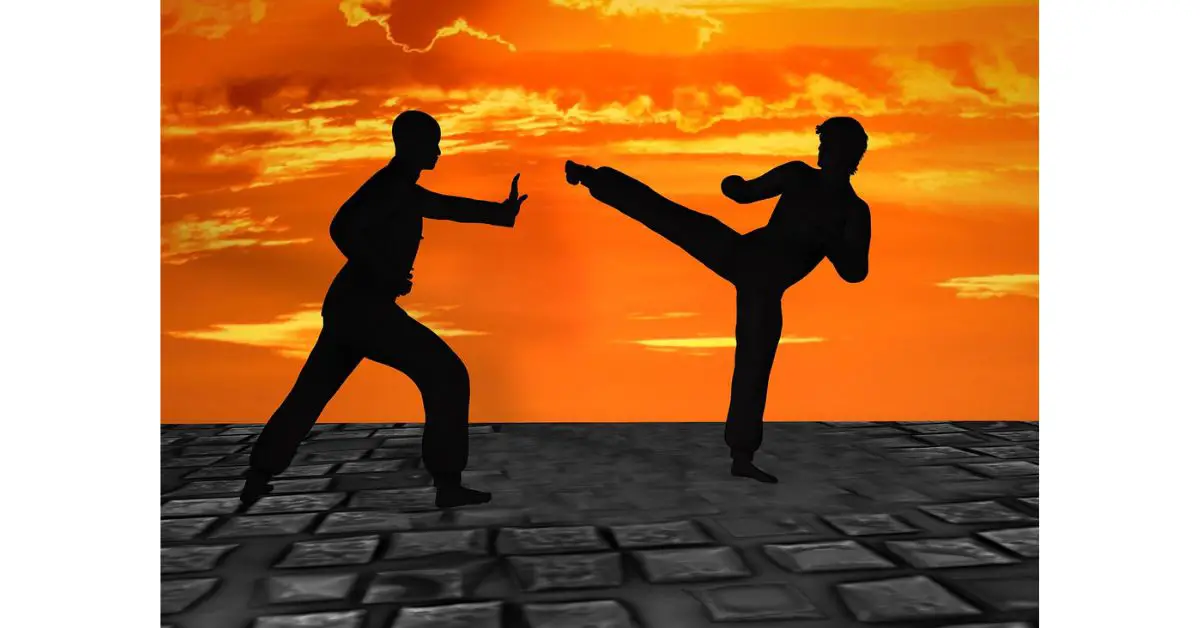
In my eyes, that’s the most vital piece of information you must know to have your own purpose for learning them. If you don’t, you’ll be left unmotivated and won’t stay consistent with training. Therefore, it’ll all go to waste.
As such, before you begin your training, ensure you have a reason you want to learn. The reasons may vary, and some of them may look like the following list:
- self-improvement
- learning self-defense
- improving physical shape
- growing social life
- meeting new people
- spending time outside your house
As you can see, the list is long and goes further than that. These are all purposes for training you can think about when you start training. If you do so, you’ll find that staying consistent suddenly becomes effortless.
However, if your training purpose is to see results as quickly as possible, you’ll be bound to no success since you’ll be left unmotivated shortly after the first motivation spike. So, I recommend adopting one of the purposes I’ve mentioned in the list above.
Similarity #2- Fighting techniques
The second similar trait is the fighting techniques. If you read/briefed through this article, you most likely have noticed a flaw. Honestly, it’s a deliberate one and if you didn’t notice, let me explain.
The first difference I mentioned in the difference sections-is the fighting techniques. So, if it’s different in two of them, how can it be similar? Let me explain how the fighting techniques karate and kickboxing teach are both similar and distinguished.
Karate and kickboxing are martial arts that focus on punching and kicking. These are highly effective and practical if you use them appropriately. Today, everyone knows how to throw a simple punch. However, if you can combine many techniques to create an ultimate fighting combination, you’ll be a solid fighter.
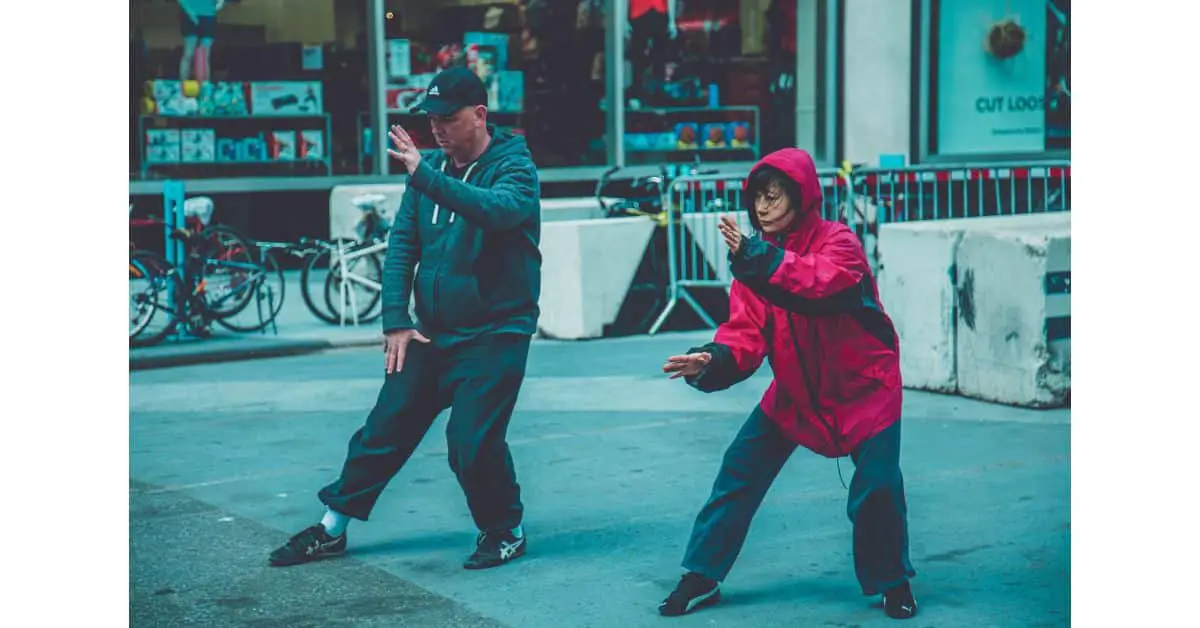
As I mentioned, everyone knows how to throw a simple punch. Nonetheless, combining kicks and many defensive and offensive means-is more demanding than you may think.
Essentially, both karate and kickboxing focus on punches and kicks. As a result, they’ll both teach the matching techniques. That said, they’re different in their fighting approaches. But, some will match.
Consequently, I decided to include fighting techniques as both a difference and a similarity. Now, you understand why and what makes them similar/different.
Similarity #3- Difficulty and Hardships
The last similarity between karate and kickboxing is the difficulty and hardships its trainees go through. Eventually, all martial arts are incredibly demanding and challenging to learn because they include intensive exercises.
That’s why you burn so many calories during martial arts training. When thinking about it, we need to appreciate the hardships more than we do now, since it’s what builds us and makes us stronger.
Both karate and kickboxing are difficult to learn because they present many hard times. Mostly, you’ll find it demanding to stay consistent and keep yourself motivated through training. However, if you have a purpose for training, you won’t have any trouble in that realm.
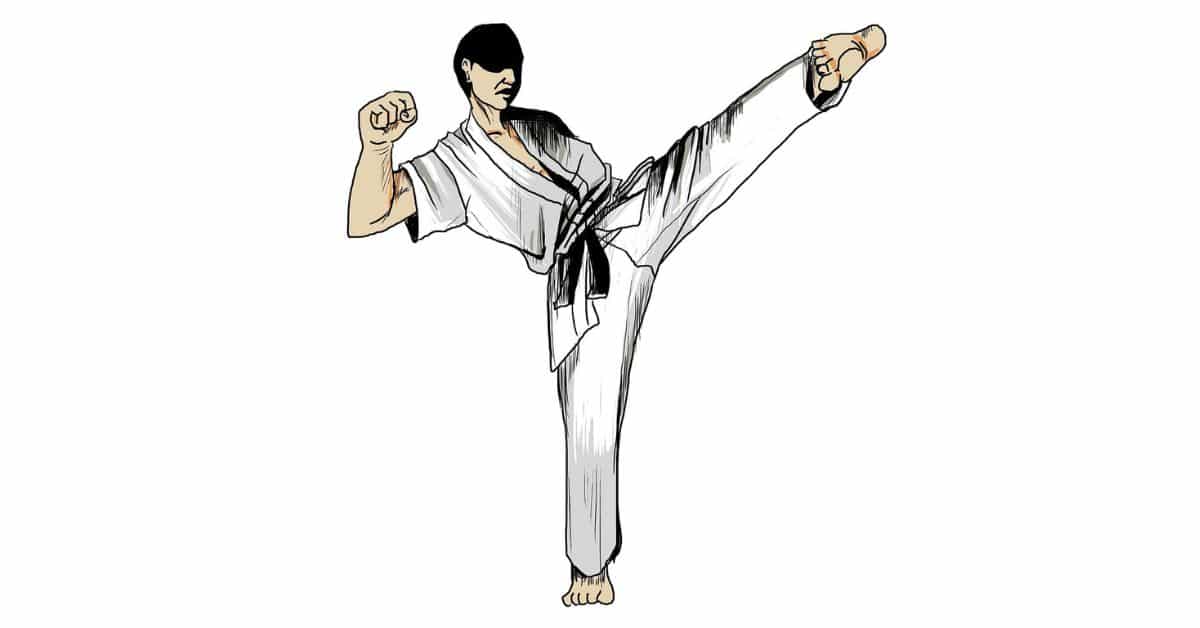
Another tip you can start to implement-is setting small milestones. For example, your ultimate goal shouldn’t be to reach the black belt. Instead, it’ll be best if you stick to small milestones and pursuits, such as learning a technique or winning in a spar.
Of course, it’s always helpful to have a concrete long-term pursuit, such as reaching the black belt. Nevertheless, if that’s your sole focus, you’ll find it challenging to stay dedicated and consistent in the long-term because reaching it-takes an extended period.
If you want to learn more on how to progress faster in martial arts, I wrote an article presenting 10-ways you can improve your progression rate.
Which is Better for Self-Defense, Karate or Kickboxing?
Most martial arts’ purpose is to teach others self-defense. As a result, when discussing some of these fighting styles, of course they’ll be suitable and effective for such a pursuit. Yet, some may be more than others. So, which is better?
Kickboxing is better than karate for self-defense because it teaches the trainees more effective fighting techniques than the latter. As a result, kickboxers will be capable of causing more damage in less time. Additionally, kickboxing training involves sparring, which will better prepare you for a dangerous situation.
That said, Karate is also effective and suitable for self-defense because it teaches similar techniques to kickbox; hence, punching and kicking.
Nonetheless, if your pursuit is to learn self-defense, you ought to consider kickboxing as your primary martial art. On the other hand, if you desire to study a traditional fighting style which is also suitable for self-defense, karate is your choice.
To summarize, both martial arts suitable for self-defense. Moreover, learning either for that purpose-will be fine. That said, kickboxing is more effective than the latter for such a purpose because it teaches more practical and realistic techniques to cause massive damage quickly.
I asked a martial artist this question and here’s the response I got.
For a professional fighter, Kickboxing is better because they focus on training basic skills for the purpose of using them to win a fight in a controlled environment and within a certain ruleset.
Should I Learn Karate or Kickboxing?
Answering this question-is impossible since it’s entirely individualistic. As a result, my answer will adapt to either style and say who should learn it. Therefore, when you make your own choice, you’ll know you chose the most suitable one.
If you desire to study a traditional martial art suitable for self-defense and self-improvement, consider Karate. On the other hand, if you desire to learn a modern fighting style more suitable for fighting pursuits and self-improvement, consider kickboxing as your primary martial art.
Eventually, it all depends on what you want to learn. If, for example, you desire gaining life-lessons and invaluable worths, karate is the best for the job.
However, if you want to study fighting techniques and becomes the best fighter possible, consider kickboxing.
Final Words
Both karate and kickboxing are fantastic martial arts suitable for self-defense and self-improvement. Many are the benefits their trainees receive, and thus it’s invaluable to learn one of them.
Comparing two martial arts is always challenging. However, I compared both for their differences and similarities, so you don’t have to struggle when choosing which to learn.
I highly encourage you to start training in any martial art – as the process you’ll go through is life-changing. Because of that, learning any-is a wise choice. If you want to read more about the best martial arts you should learn from around the world, I wrote an article just for you.

